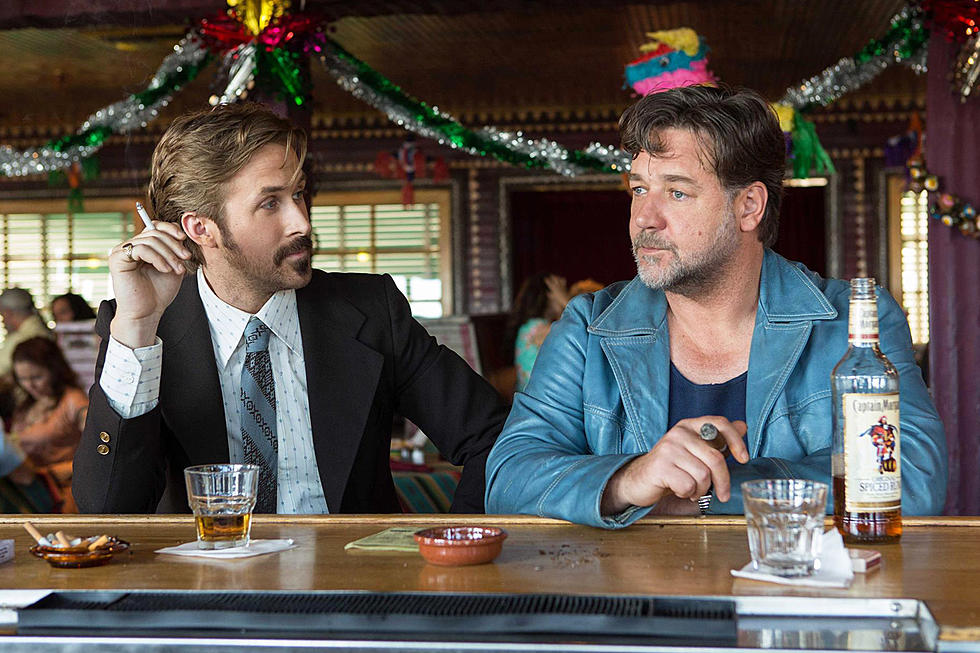
Theater Chains to Allow Texting During Movies?
During a panel today at CinemaCon theater chain owners debated the merits of allowing texting and cell phone usage during films and revealed they've experimented with the concept. All this which predictably set off Tim League, CEO of Alamo Drafthouse, the theater chain notorious for booting talkers and texters.
Should chains even consider such a concept just to pander to a younger crowd? Aren't they doing enough already?
Sony Picture Entertainment's Jeff Blake expressed his concern that not enough young people are coming to the theater anymore, while Amy Miles, CEO of Regal Entertainment Group said, "if we had a movie that appealed to a younger demographic, we could test some of these concepts" adding that her chain was "more flexible" on cell phone use during screenings of '21 Jump Street.'
Greg Foster of IMAX said, "We want them to pay $12 to $14 to come into an auditorium and watch a movie. But they’ve become accustomed to controlling their own existence" and that leaves them feeling "handicapped" when told they can't use their phone. Well maybe they've also become "accustomed to controlling their own existence" because their parents haven't been teaching them proper manners, so instead of curbing their ill manners, the idea is to let them do whatever they want? It's also worth noting that they -- the spoiled people of America -- paid you, the large theater chain, for a privilege, which doesn't entitle them to spit all over it and ruin it for everyone else. You have to set standards, not gently suggest them.
Enter Alamo Drafthouse CEO Tim League, who aptly responded:
Over my dead body will I introduce texting into the movie theater. I love the idea of playing around with a new concept. But that is the scourge of our industry... It’s our job to understand that this is a sacred space and we have to teach manners.
The Drafthouse was built on a dinner and a movie concept that has strongly forbade talking or the use of cell phones for any reason in the theater. The theater plays a humorous warning to would-be talkers and texters, threatening to throw them out if they misbehave and encouraging patrons to alert their servers to any disturbances. There's a reason why the Drafthouse has been rapidly expanding: the Drafthouse model is profitable, and it works. People don't just go for the food and the beer selection -- they go because they know talking and cell phone usage aren't just discouraged -- they're banned.
Other theaters, like Regal, ask that people silence their cell phones and be courteous to others, but it's more of a suggestion and major chains are renowned for their lax policies. It's become a headache to visit your local multiplex when you know people will talk and text, and if you complain you have to miss several minutes of the film that you paid good money to see without the guarantee that a manager will do anything about the offender. And then there's the "customer is always right" mentality of larger corporations, which often reward customers who behave badly and complain to management with free passes.
It's not much to ask that people who have paid to enjoy a film aren't bothered by distractions. If people want to use their cell phones during a film, there are many options available to them, like renting films from a variety of services and even viewing some new releases early OnDemand. If you can't be bothered to keep your phone silent or on vibrate for two hours, then maybe you shouldn't be at the theater at all. Some complain that they are just as justified in their cell phone usage because they paid the cost of admission, too, but again this falls to movie theater chains to set standards and enforce their policies, which isn't always easy in this modern culture of entitlement.
But then -- why is it so easy for Tim League and the Alamo Drafthouse? Is it because the Drafthouse was made by cinema lovers for cinema lovers and attracts a specific clientele? Their attendees look like patrons of just about any other movie theater in town, and the Drafthouse plays a variety of films from commercial releases to smaller indie features.
What do you think? Take our poll and let us know if you think theaters should allow texting:
More From ScreenCrush









